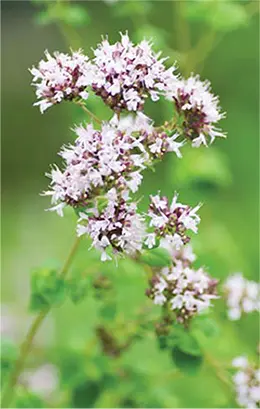
Marjoram: Aromatic Herb of Culinary Delight and Healing
Marjoram, scientifically known as Origanum majorana, is a perennial herb in the mint family, cherished for its aromatic leaves and small, attractive flowers. Native to the Mediterranean, sweet marjoram is a staple in culinary and medicinal traditions. Its close relative, oregano, is often referred to as wild marjoram.
Historical Significance
Marjoram’s history is as rich as its flavor. Archaeological findings suggest its usage dates back to the Neanderthal era. In Roman and Greek mythology, marjoram was a symbol of beauty and love, attributed to goddesses Venus and Aphrodite. Aristotle’s mention of marjoram as a remedy for snakebite highlights its ancient medicinal importance.
Healing Properties
Marjoram serves as an excellent remedy for common ailments. A soothing tea made from marjoram relieves coughs, colds, and headaches. Its sedative qualities aid in treating insomnia and reducing stress. Marjoram essential oil, used in massage, alleviates muscle strains and sprains. Its application as a poultice offers relief from muscle cramps. Additionally, marjoram boosts the immune system and aids in digestion.
Magical Uses and Symbolism
In magical practices, marjoram is a symbol of cleansing and protection. Planting marjoram in gardens wards off evil. It’s used in love spells to attract romance, enhance relationships, or heal from heartbreak. Marjoram sachets attract wealth and prosperity. Placing marjoram under the pillow induces meaningful dreams.
Personal and Spiritual Enrichment
Marjoram offers comfort and peace, especially beneficial for those experiencing grief. Its warming effect soothes the mind, body, and spirit. Bathing with marjoram aids in processing grief, while burning it encourages moving forward and embracing life changes.
